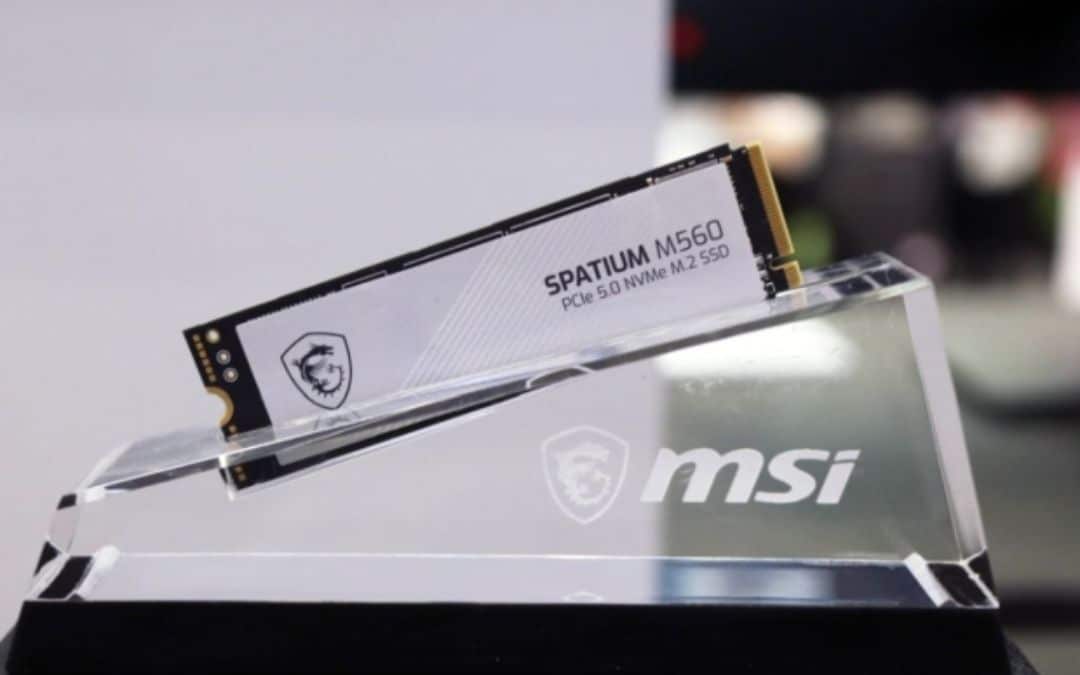Description
MSI SPATIUM M560 PCIe 5.0 NVMe M.2 2TB SSD, Sequential Read up to 10300MB/s, Sequential Write up to 8700MB/s, 1200 TBW, 5 Year Warranty
The MSI Spatium M560 is a solid-state drive in the M.2 2280 form factor, launched in 2024. It is only available in the 1 TB capacity listed on this page. With the rest of the system, the MSI Spatium M560 interfaces using a PCI-Express 5.0 x4 connection. The SSD controller is the PS5031-E31T from Phison, a DRAM cache is not available. MSI has installed 218-layer TLC NAND flash on the Spatium M560, the flash chips are made by Kioxia. To improve write speeds, a pseudo-SLC cache is used, so bursts of incoming writes are absorbed more quickly. Thanks to support for the fast PCI-Express 5.0 interface, performance is excellent. .
The SSD's price at launch is unknown. The warranty length is set to five years, which is an excellent warranty period. The TBW rating for the MSI Spatium M560 1 TB is unknown, too.
SPECIFICATION
Model Name
SPATIUM M560 PCIe 5.0 NVMe M.2
Capacity
2TB
Controller
PHISON E31T
Flash Memory
3D NAND
Form Factor
M.2 2280
Interface
PCIe Gen5x4, NVMe 2.0
Compatibility
PCIe Gen5 /PCIe Gen4 / Gen3 / Gen2 / Gen1
Dimensions
80.00mm (L) x 22.00mm (W) x 2.15mm (H)
Sequential Read up to (MB/s)
10,300
Sequential Write up to (MB/s)
8,700
Random Read 4KB up to (IOPS)
1,300,000
Random Write 4KB up to (IOPS)
1,400,000
Maximum Operating Power (W)
5.9
Idle Power PS3 (mW)
50
Low Power L1.2 (mW)
3.5
Operating Temperatures
0°C – 70°C
Storage Temperatures
40°C – 85°C
Terabytes Written (TBW)
1200
Mean Time Between Failure (MTBF)
Up to 1,500,000 Hours
Limited Warranty
5 Years, or the coverage for the maximum TBW as stated, whichever comes first.
Advanced Features
TRIM (Performance Optimization, OS support required)
SMART (Self-Monitoring, Analysis and Reporting Technology)
LDPC (Low Density Parity Check) ECC Algorithm
End to End Data Path Protection
APST (Autonomous Power State Transition)



